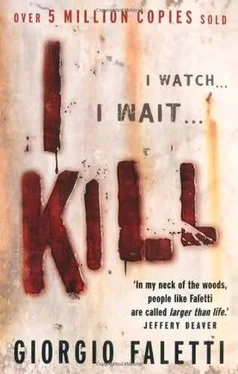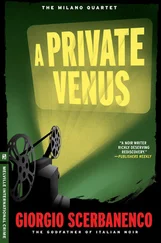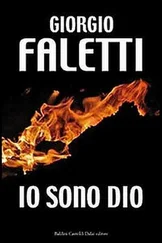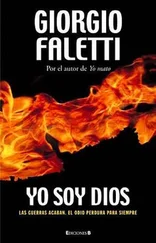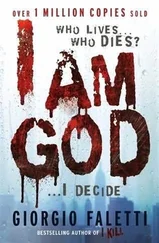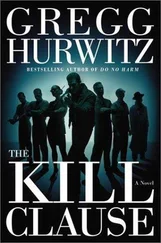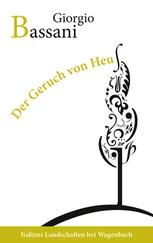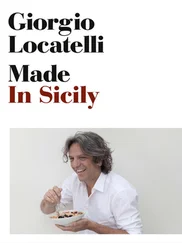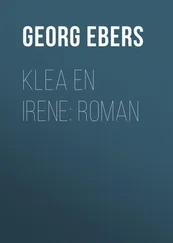‘Sorry I spoiled your lunch.’
‘You didn’t spoil anything, Nicolas. Not at all. I haven’t had much company lately. At a certain age, there’s a new logic. You ask yourself why, if time seems to go by so quickly on some days, on others it never passes.’
They walked out to the garden and the wrought-iron gate. Nicolas looked at his car parked in the sun. It would be as hot as Jean-Paul’s oven. He stuck his hand in his jacket pocket and pulled out a card.
‘Keep this, Jean-Paul. If you ever come to Monte Carlo, there’s always a place to stay and a meal waiting for you.’
Jean-Paul took the card and looked at it without answering. They might never see each other again, but he would not throw it away. Hulot held out his hand and felt the man’s vigorous handshake.
‘By the way, there’s something else I wanted to ask you. It’s just out of curiosity. It has nothing to do with all this.’
‘What’s that?’
‘Why “Disque à Risque”?’
This time it was Jean-Paul who laughed.
‘Oh, that… When I opened the shop, I had absolutely no idea if it would work out. It wasn’t the customer’s risk. It was mine.’
Hulot left, smiling and shaking his head as Jean-Paul watched him through the open gate. When he reached the car, he put his hand in his jacket pocket, looking for his keys. His fingers touched the blue paper that Jean-Paul had given him, the one with the name and phone number. He pulled it out and looked at it for a moment, lost in thought.
Disque à Risque, the rare record shop, had had its biggest success seven years after going bankrupt.
Morelli rang as Hulot was driving through Carnoux-en-Provence on his way to Cassis. Hulot reached out to turn off the car radio and picked up his phone from the passenger seat.
‘Hello?’
‘Inspector, it’s Morelli. I found the address you asked for. Sorry it took a little while – you were right, the number’s out of service. I had to trace it back to France Télécom.’
‘And?’ Hulot tried to hide his disappointment.
‘It was the number of a farm, Domaine La Patience, Chemin de l’hiver, Cassis. But there’s something else.’
‘What?’
‘The phone company had to disconnect the number. It was never cancelled. The subscriber just stopped making payments at a certain point and the company turned it off after sending a number of reminders. The person I spoke to didn’t know anything else. We’d have to do more research and I doubt we’d find anything.’
‘Don’t worry about it, Claude. That’s great. Thanks.’ There was some hesitation on the other end. Hulot realized that Morelli was waiting for him to speak. ‘What is it?’
‘Everything okay?’
‘Yes, Morelli. Just fine. I’ll be able to tell you more tomorrow. Talk to you then.’
‘Okay, inspector. Take care.’
Hulot put the phone back on the seat. He didn’t need to jot down the address Morelli had given him. It was imprinted in his brain and would stay there for a very long time. As he left Carnoux, a small Provençal town, clean and modern, he let other memories drift through his mind.
He had driven down that road many years before with Céline and Stéphane. They were on holiday and they had laughed and joked like there was no tomorrow. He had never felt better. Compared to his life now, those had been days of real happiness. Days that had been blotted out by what came after, when all his energy was devoted to grief.
His son was around seven years old then. When they had arrived at Cassis, Stéphane had been very excited, as all children are at the seaside. They had parked their car at the edge of town and walked down to the beach along a narrow path, their clothes tugged by a strong breeze.
At the harbour they had been greeted by dozens of yachts. There was a lighthouse in the distance and the open sea stretched out beyond the cement jetty designed to protect the marina.
They had had an ice cream and taken a choppy boat-trip to see the calanques, the rocky inlets in the sea, tiny fjords that seemed so French in that corner of Provence. Hulot had been seasick over the side of the boat, and Céline and Stéphane had laughed hysterically at the faces he made, his rolling eyes and exaggerated attempts to vomit. He had forgotten for a moment that he was a police officer and had let himself be just a husband, a father and a clown.
Stop it, Papa. My stomach hurts from laughing.
Now, life seemed like cinema to Hulot. Whoever wrote the scripts had a macabre sense of humour. While he had been wandering through the town’s streets many years before with his wife and son, happy and light-hearted – at that very moment perhaps, someone was receiving a phone call from the owner of a music shop agreeing to sell him a rare record. Maybe they’d even crossed paths with him as they were walking. Or maybe, as they were leaving Cassis, they’d even followed his car for a while as he drove to Aix to pick up the precious disc.
When Hulot reached the outskirts of the town, he parked his Peugeot and his memories of the happy past along with it. He looked at the view from the top floor of a parking garage called La Viguerie. Cassis hadn’t changed much. The cement sea wall at the harbour had been reinforced and a few houses rebuilt. Others were dilapidated, but there was enough limewash and paint on them to help tourists forget the passing of time. That’s what holidays were for, after all: forgetting.
He thought about what to do. The simplest thing would be to ask the local police for information, but he was investigating privately and wanted to avoid attracting attention. On the other hand, anyone wandering around asking questions, even in a seaside resort full of holidaymakers, would not remain inconspicuous for long. This was a small town where everybody knew everybody else, and he was about to dig up their flower bed.
The street leading to the harbour was the same one he had walked down with his family years earlier. An old man carrying a wicker basket full of sea urchins was heading uphill in the opposite direction. Hulot stopped him. Despite his age, the old man was not the least bit out of breath.
‘Monsieur?’
‘Whaddya want?’ the old man barked.
‘Could you give me some information please?’
The man put the basket of sea urchins on the ground and looked at them as if he were afraid they might go bad. He reluctantly raised his eyes, buried beneath thick, black eyebrows.
‘What?’
‘Do you know of a farm called La Patience?’
‘Yes.’
Hulot wondered briefly whether his respect for the elderly would outweigh the anger he always felt towards rude people, young or old. With a sigh, he decided to let it go.
‘Could you please tell me where it is?’
‘Outside the town.’ The old man waved to a vague point somewhere in the distance.
‘Yes, I thought it would be.’
Hulot had to restrain himself from grabbing the man by the neck. He waited patiently, but the expression on his face must have warned the man not to push his luck.
‘You driving?’
‘Yes, I’ve got a car.’
‘Then take the road that leads out of town. Turn right at the lights towards Roquefort. When you get to the roundabout, you’ll see a sign for Les Janots. After that, your first left will be a dirt road that crosses a stone bridge over the railway line. Take it and bear right at the fork. The road ends at La Patience.’
‘Thank you.’
Wordlessly, the old man picked up his basket of sea urchins and continued on his way.
Hulot finally felt the excitement that came from a good lead. He hurried back up the road and was breathing hard by the time he got to the car. He followed the directions, which, though given grudgingly, were perfect, and turned on to the dirt road that went up to the rocky hills overlooking Cassis. The Mediterranean vegetation and the larches and olive trees almost completely hid the canyon where the railway line was. As he crossed the stone bridge mentioned by the old man, a dog, some kind of labrador, started chasing the Peugeot, barking. When Hulot reached the fork in the road, the dog obviously considered his job done. He stopped running and howling and went away, trotting towards a farmhouse on the left.
Читать дальше
